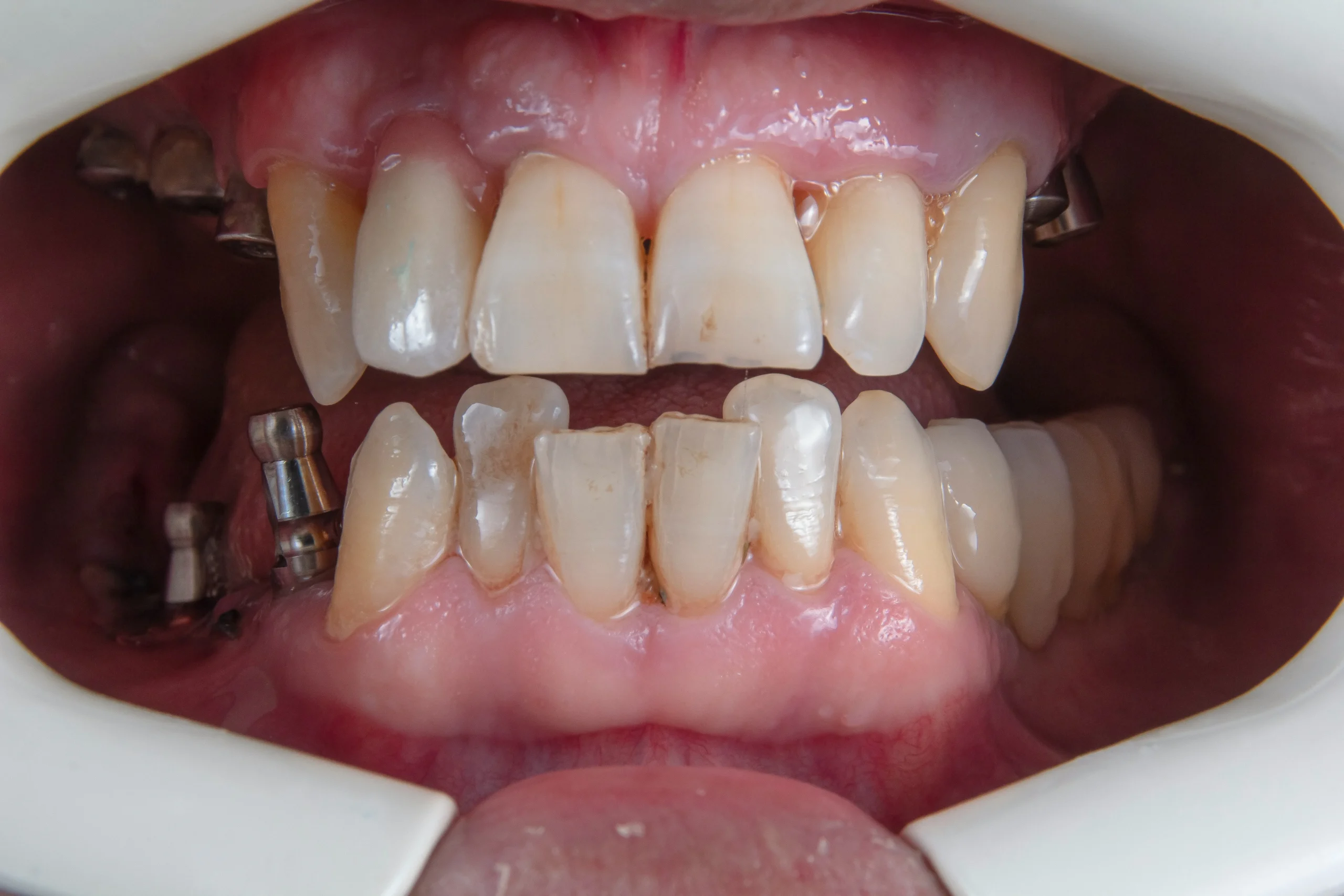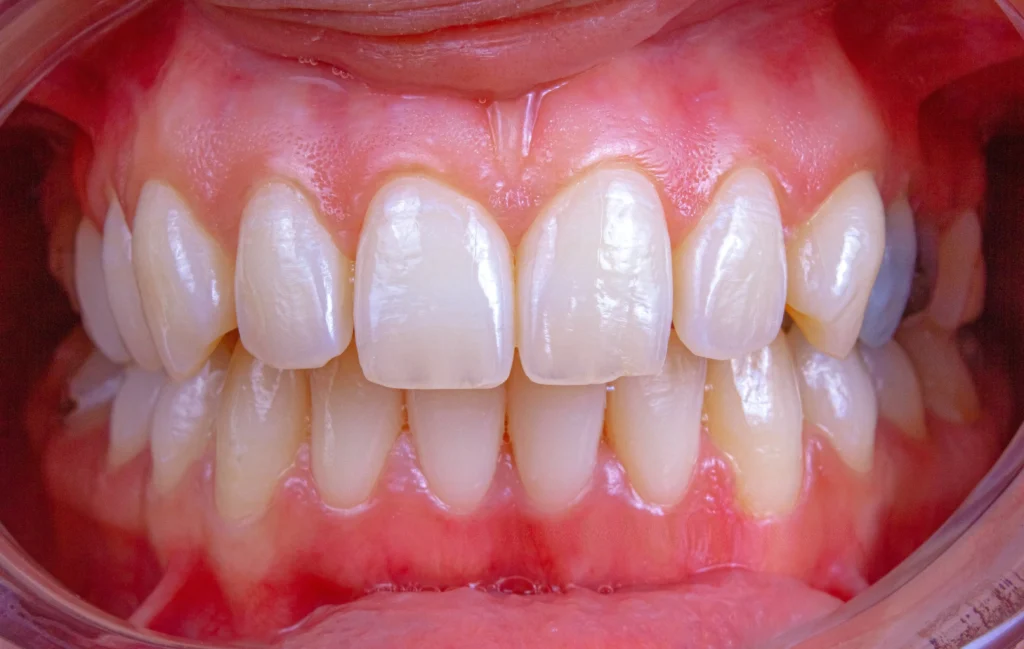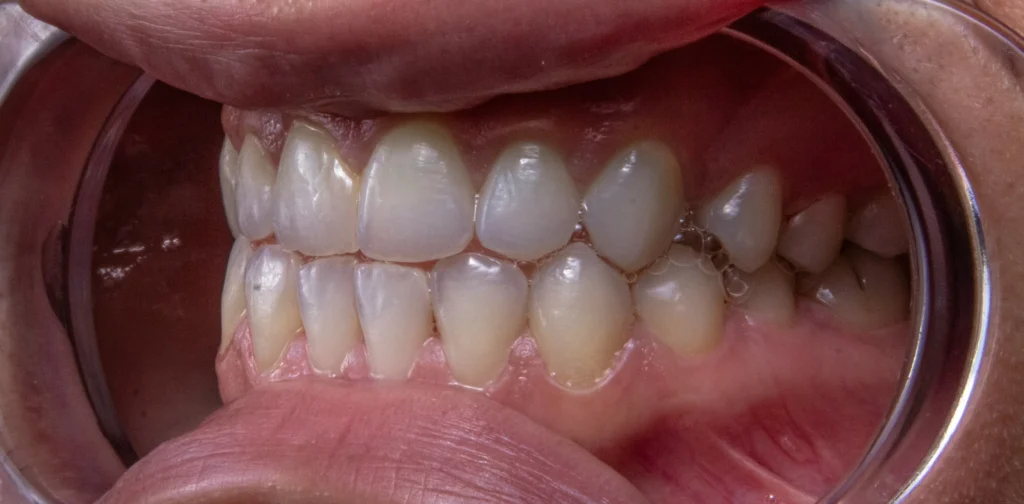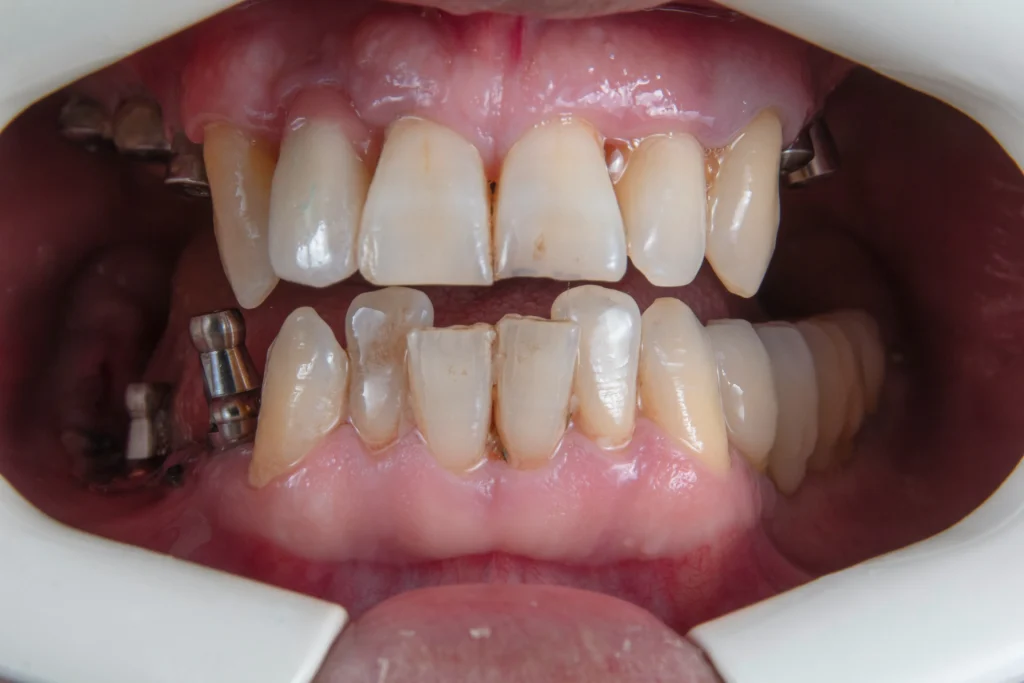
Table of Contents
Why are my teeth yellow when i brush them everyday

It’s a common concern—many people brush their teeth every day but still notice their teeth aren’t as white as they’d like. If you’re wondering, “Why are my teeth yellow when I brush them every day?” you’re not alone. There are several reasons why this can happen, and understanding them can help you take the right steps toward a brighter smile. Let’s dive into the reasons behind yellow teeth and how to fix them.
Common Misconceptions About Teeth Whitening
Brushing Automatically Means White Teeth?
The first thing to consider is that brushing alone doesn’t always guarantee white teeth. While regular brushing is essential for oral health, it doesn’t necessarily address factors that contribute to yellowing. Many people assume that as long as they brush every day, their teeth will remain perfectly white. But unfortunately, this isn’t the case.
Over-Brushing and Its Pitfalls
Another misconception is that over-brushing your teeth will speed up the whitening process. However, brushing too hard or too often can actually harm your enamel, leading to more visible discoloration. The key is brushing correctly, not just frequently.
What Is the Natural Color of Your Teeth?
Enamel and Dentin: The Basics
Your teeth are made up of a hard, outer layer called enamel, which protects the softer layer beneath called dentin. The natural color of your teeth can vary from person to person. While some people have naturally white teeth, others may have a more yellowish tone due to the natural color of their dentin showing through.
Genetics Play a Role
Just like your eye color or hair type, the natural color of your teeth can be influenced by genetics. If your family members tend to have yellowish teeth, it could be in your DNA as well. Unfortunately, this is not something you can change.
Why Do Teeth Turn Yellow Despite Brushing?
1. Enamel Erosion
As we age, the enamel on our teeth naturally wears away. Enamel erosion exposes the yellowish dentin underneath, causing teeth to appear yellow even if they’re brushed regularly. Acidic foods, drinks, and even aggressive brushing can speed up this process.
2. Diet Choices
What you eat can significantly impact the color of your teeth. Certain foods and drinks like coffee, tea, red wine, and berries contain pigments that can stain your teeth. These stains can build up over time and make your teeth look yellow, despite daily brushing.
3. Smoking and Tobacco Use
Tobacco products, especially cigarettes and chewing tobacco, are notorious for staining teeth. The nicotine and tar in tobacco products can cause your teeth to become yellow and even brown over time, despite regular oral hygiene.
4. Poor Brushing Technique
It’s not just about brushing daily; it’s also about how you do it. Poor brushing techniques, such as brushing too quickly or using the wrong type of toothbrush, can leave plaque and food particles behind, leading to yellowing. Proper brushing is vital for maintaining a white smile.
5. Not Flossing or Rinsing
Brushing alone is not enough to ensure clean teeth. If you’re not flossing and rinsing regularly, plaque and food particles can remain between your teeth, contributing to discoloration. Flossing and using mouthwash are important parts of a complete oral hygiene routine.
6. Medication Side Effects
Certain medications, like antibiotics, can cause staining on your teeth. Some common drugs, such as tetracycline, can lead to yellow or grayish discoloration, especially when taken during childhood.
7. Fluorosis and Excess Fluoride
Fluorosis is a condition that results from excessive fluoride exposure during childhood, typically from toothpaste or drinking water with high fluoride content. This can cause white or yellow spots on the teeth and can even affect the overall color.
8. Aging
As you get older, your teeth naturally darken. The enamel thins with age, and the dentin becomes more prominent, giving teeth a yellowish appearance. This is a normal part of the aging process and is often unavoidable.
9. Genetics
As mentioned earlier, genetics play a major role in the color of your teeth. Some people naturally have more yellow or grayish teeth due to the thickness and color of their enamel, and there’s not much that can be done about it.
10. Plaque and Tartar Buildup
Plaque is a sticky film of bacteria that forms on your teeth. If not removed regularly, it can harden into tartar, which can cause yellowing. Tartar can only be removed by a dentist, so regular cleanings are important to prevent it from building up.
Why are my teeth yellow when i brush them everyday

Tooth Whitening: What Works and What Doesn’t
Professional Whitening
If you’re looking for fast and effective results, professional whitening treatments at the dentist are your best bet. These treatments use stronger bleaching agents than over-the-counter products, and they can address deep stains that regular brushing can’t remove.
Over-the-Counter Whitening Products
There are many whitening products available at your local drugstore, including strips, toothpaste, and mouthwashes. While they can help lighten surface stains, they may not be effective for deeper discoloration. It’s important to manage expectations and understand that these products have limitations.
Natural Whitening Remedies
Some people turn to natural remedies like baking soda or oil pulling in hopes of whitening their teeth. While these methods might help remove some surface stains, they aren’t a guaranteed solution and may not be as effective as professional treatments.
The Right Oral Hygiene Routine
Brushing Techniques
Brushing your teeth properly is crucial. Make sure you use a soft-bristled toothbrush and brush for at least two minutes twice a day. Avoid brushing too hard, as this can damage your enamel.
Choosing the Right Toothbrush and Toothpaste
Your toothbrush and toothpaste play a significant role in your oral hygiene. Opt for a fluoride toothpaste and choose a toothbrush that’s gentle on your gums while effectively cleaning your teeth.
Flossing and Mouthwash
Don’t forget to floss daily to remove food particles between your teeth, and rinse with mouthwash to kill bacteria. These steps are just as important as brushing for maintaining healthy, white teeth.
When to See a Dentist
If you’ve tried everything and your teeth still appear yellow, it may be time to consult a dentist. A dental professional can assess whether there’s an underlying health issue causing the discoloration and recommend appropriate treatments.
Lifestyle Changes for Whiter Teeth
Diet Modifications
Consider cutting back on staining foods and drinks, or at least rinsing your mouth with water after consuming them. Drinking through a straw can also help reduce the amount of contact these beverages have with your teeth.
Quit Smoking
If you smoke, quitting is one of the best things you can do for both your health and the appearance of your teeth. Smoking not only causes yellowing but also increases your risk of gum disease and other oral health problems.
Regular Dental Cleanings
Getting regular cleanings at the dentist can help prevent plaque buildup and keep your teeth looking their best. Aim to schedule a cleaning every six months.
Why are my teeth yellow when i brush them everyday Final Thoughts
Yellow teeth can be frustrating, but they’re not a lost cause. By understanding the reasons behind discoloration and taking proactive steps to improve your oral hygiene routine, you can work toward achieving a brighter, whiter smile. Remember, consistency is key, and sometimes professional help is necessary.
Why are my teeth yellow when i brush them everyday

Why are my teeth yellow when i brush them everyday FAQs
1. Can I whiten my teeth if they’re naturally yellow?
Yes! There are treatments available that can help improve the appearance of yellow teeth, even if it’s due to genetics. Professional whitening is often the most effective option.
2. Does brushing twice a day help prevent yellow teeth?
Brushing twice a day is essential for maintaining oral health, but it alone won’t guarantee a white smile. It’s also important to address other factors like diet and plaque buildup.
3. Is smoking the only cause of yellow teeth?
No, smoking is a major contributor, but other factors like diet, aging, and medication can also lead to yellowing teeth.
4. How long does it take to see results from whitening treatments?
The time it takes to see results depends on the method you choose. Professional treatments can show results quickly, while over-the-counter products may take longer.
5. Can yellow teeth be a sign of a health problem?
In some cases, yellowing can be a sign of underlying health issues, such as enamel erosion or medication side effects. If you’re concerned, consult with a dentist to rule out any serious conditions.


Leave a Reply